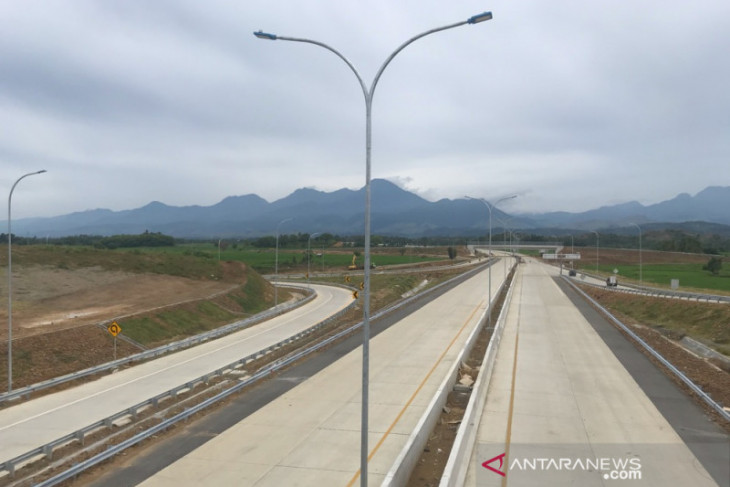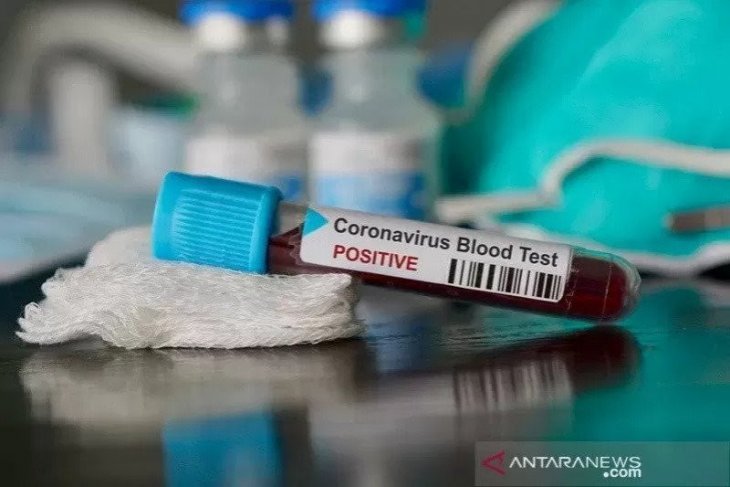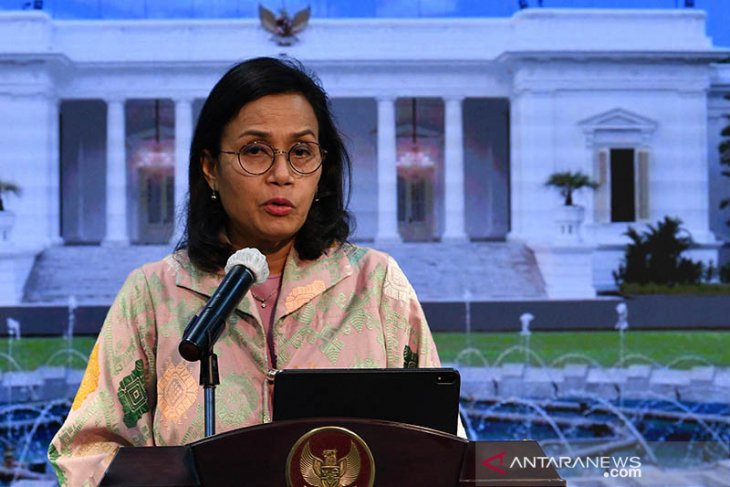Live Streaming
Program Highlight
Company Profile

Ani Hasanah
August

Sigli-Banda Aceh (Sibanceh) Toll Road Section 4 of the Blang Bintang-Indrapuri toll road in Aceh Besar District, Aceh. ANTARA / Khalis
Infrastructure development is part of the government's strategies to speed up the process of the nation’s economic recovery, according to President Joko Widodo (Jokowi).
"Under such conditions, infrastructure development is one of the strategies that provide leverage to accelerate national economic recovery," the president remarked while inaugurating the Sigli-Banda Aceh Section 4 Toll Road for the Indrapuri-Blang Bintang section in Aceh Besar District, Aceh, Tuesday, as witnessed virtually.
The president cited as an example that construction of the toll road connecting Aceh to Lampung along 2,765 kilometers will encourage economic growth and equity in Sumatra.
In addition, toll road construction can boost efficiency and workforce absorption.
The head of state remarked that despite the Indonesian nation reeling from the impacts of the COVID-19 pandemic, infrastructure development will continue nonetheless since Indonesia still lags behind other countries in this area.
Underdeveloped infrastructure leads to the logistics costs becoming more expensive than those of other countries.
"This is what lowers our competitiveness in comparison with our neighboring countries," the president added. (ANTARA)
President Joko Widodo (Jokowi) emphasized that the main corridor of the Trans-Sumatra toll road sections in Aceh must be integrated with and connected to the province's tourism and agricultural centers, as well as industrial areas.
Thus, the people, at large, could optimally benefit from the construction of the toll road sections in Indonesia's westernmost province, he stated in connection with the inauguration of the Banda Aceh-Sigli Toll Road Section 4 on Tuesday.
President Jokowi echoed his aspirations that with the presence of the toll roads, Aceh would be able to emerge as a new epicenter of Sumatra Island's economic growth.
The head of state also highlighted the significance of involving micro, small, and medium enterprises in the province's economic development to enable them to benefit from the development.
On Tuesday, President Jokowi inaugurated the Sigli-Blang Bintang Toll Road as the section 4 of the 74-kilometer-long Banda Aceh-Sigli Toll Road.
This first toll road section in Aceh Province is part of the Trans-Sumatra toll road construction project.
Since the first and second leadership terms of President Jokowi, infrastructure has held special significance, with the remarkable extension of toll roads being testament to it.
According to the Public Works and Housing Ministry, during President Jokowi’s first leadership term, at least 941 kilometers of toll roads and 3,423 kilometers of national roads were constructed.
Work on the Trans-Java Highway that connects the ferry port in Merak, Banten Province, to Surabaya, the capital city of East Java Province, is complete, thereby reducing the travel time and current logistics costs.
As part of the central government's prioritized development projects, the toll roads are not merely constructed in Java, but they are also built outside the island, such as in Sumatra, Kalimantan, and Sulawesi.
In Sumatra Island, several sections of the Trans-Sumatra Toll Road have been completed, while the government is eyeing to complete entire sections in 2024.
Work on the Trans-Sumatra Toll Road Construction project is still underway. State-owned construction companies involved in the project have striven ceaselessly to ensure it is completed in line with the set target. (ANTARA)
August

Illustration - Blood samples believed to be infected with coronavirus. So far, 2,077,441 samples have been tested for the virus in Indonesia. (ANTARA/Shutterstock/am)
With 1,807 more people recovering from the novel coronavirus disease as of Tuesday afternoon, the total recoveries in Indonesia reached 112,867, according to the Task Force for the Handling of COVID-19.
Meanwhile, the addition of 2,447 new cases took the total nationwide COVID-19 case count to 157,859. With 82 more people succumbing to the virus, the total death toll reached 6,858, according to data compiled by the task force as of 12 p.m. Western Indonesian Time (WIB) Tuesday.
In terms of the distribution of cases, Jakarta recorded the highest number of new infections at 637. Meanwhile, 524 patients recovered from COVID-19 and 16 others succumbed to the disease in the province.
East Java was next with 363 new cases, 348 recoveries, and 27 deaths, followed by West Java, which recorded 250 new cases, five recoveries, and one death.
Central Java reported 198 new confirmed cases, 120 recoveries, and 25 deaths; East Kalimantan 141 new cases, 167 recoveries, and nine deaths; North Sumatra 134 new cases, 107 recoveries, and two deaths; and, West Sumatra 77 new cases, 20 recoveries, and one death.
Meanwhile, six provinces reported less than 10 new confirmed cases in the last 24 hours. Three provinces recorded zero cases of COVID-19 on Tuesday — Central Sulawesi, West Papua, and Papua.
The task force also reported a total of 76,667 suspected cases of COVID-19. It said 485 districts/cities in 34 provinces have been exposed to the virus.
On Tuesday, 21,275 samples were tested for COVID-19 with the help of the polymerase chain reaction and molecular rapid tests. So far, 2,077,441 samples have been analyzed in laboratories across the country. (ANTARA)
August

Minister of Finance Sri Mulyani Indrawati. ANTARA FOTO/Sigid Kurniawan/POOL/foc/aa
Finance Minister Sri Mulyani Indrawati stated that until July 2020, state spending grew by 1.3 percent year-on-year (yoy), reaching Rp1,252.4 trillion, from Rp1,236.3 trillion during the corresponding period last year.
Indrawati pointed out that the realization of Rp1,252.4 trillion was 45.7 percent of the changed state budget target of Rp2,739.2 trillion in the Presidential Decree (Perpres) 72 of 2020.
"State expenditures of Rp1,252.4 trillion are prioritized for handling COVID-19 and national economic recovery (PEN)," he remarked at a press conference for the National Budget in Jakarta, Tuesday.
Growth in state spending was supported by the central government spending of Rp793.6 trillion that rose by 4.2 percent, from Rp761.3 trillion during the corresponding period in 2019 and 40.2 percent of the state budget target change of Rp1,975.2 trillion in Perpres 72 of 2020.
Central government spending comprised realized ministry/ institution expenditure of Rp419.6 trillion, or 50.2 percent of the state budget amended target in Perpres 72 of 2020 of Rp836.4 trillion and non-ministry/institution expenditure of Rp374 trillion, or 32.8 percent of the targeted Rp1.138.9 trillion that grew by 9.5 percent.
Ministry/institution expenditure constituted personnel expenditure of Rp134.4 trillion, or 52.4 percent of the target of Rp256.6 trillion in Presidential Decree 72 of 2020 and a contraction of 10.5 percent yoy owing to changes in the holiday allowances (THR) payment policy and the 13th-month salary payment.
Goods spending of Rp121.4 trillion, or 44.7 percent of the target of Rp271.7 trillion in Perpres 72 of 2020, also contracted by 17 percent yoy that was influenced by policies of social restrictions and working from home.
Thus, passenger travel realization plunged by 62.8 percent, specifically from Rp21.5 trillion to Rp8 trillion and activities of goods handed over to the community also decreased by 22.1 percent, from Rp13.2 trillion, to Rp10.3 trillion.
"Expenditures for goods that are operational and non-operational in nature also decreased by 24.6 percent related to ministry/institution activities in the wake of no training and events," she stated.
Realized capital expenditure of Rp46.8 trillion, or a contraction of 3.3 percent, occurred due to project restructuring in the context of refocusing on handling the COVID-19 pandemic.
Realization of social assistance spending reached Rp117 trillion, or 68.6 percent of the target of Rp170.7 trillion in Perpres 72 of 2020 and recorded a growth of 55.9 percent, one of the reasons being a change in the policy on the basic food card program or BPNT.
Meanwhile, realization of non-ministry/institution spending reached Rp374 trillion, or 32.8 percent of the target of Rp1,138.9 trillion in Perpres 72 of 2020, and was able to grow by 9.5 percent as compared to Rp341.4 trillion in July last year.
Furthermore, transfers to regions and village funds (TKDD) were realized at Rp458.8 trillion, or a contraction of 3.4 percent from Rp475.1 trillion during the corresponding period in 2019.
Realization of TKDD, which reached 60.1 percent of the target of Rp763.9 trillion in Perpres 72 of 2020, was supported by the realization of village funds that grew by 50.7 percent, specifically Rp47.9 trillion, while regional performance allowances (TKD) contracted 5.1 percent, or Rp410.9 trillion. (ANTARA)


